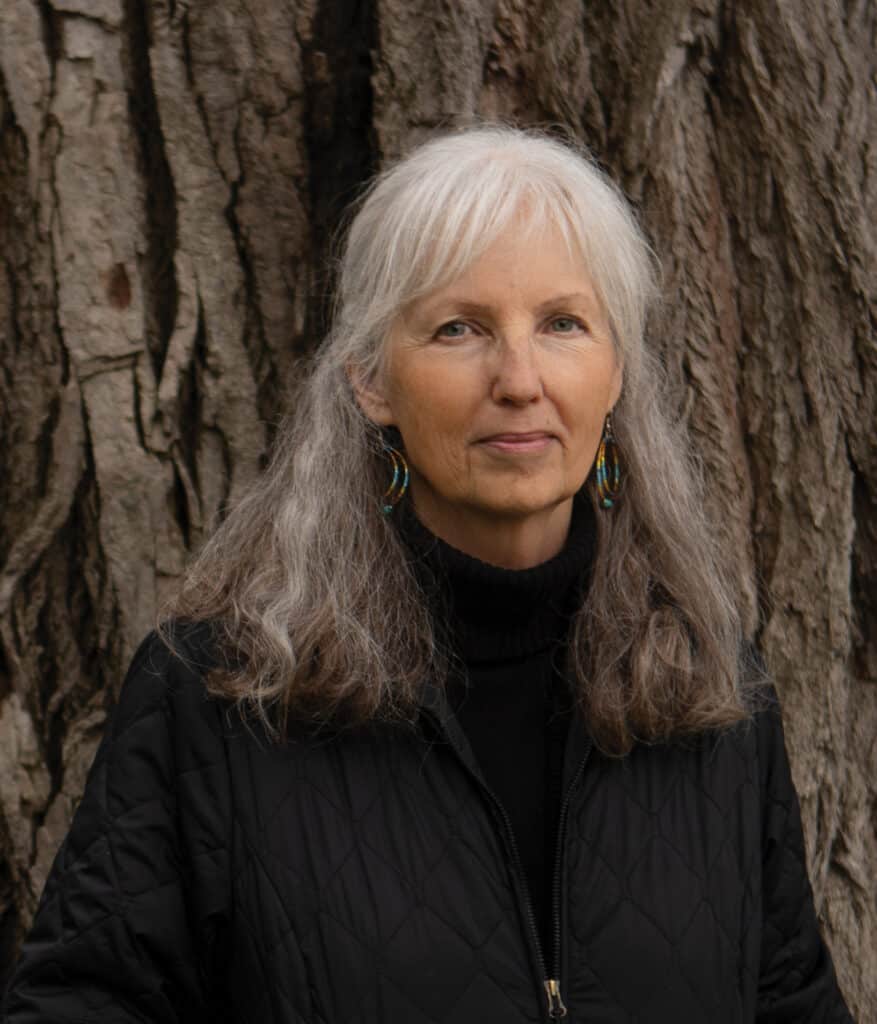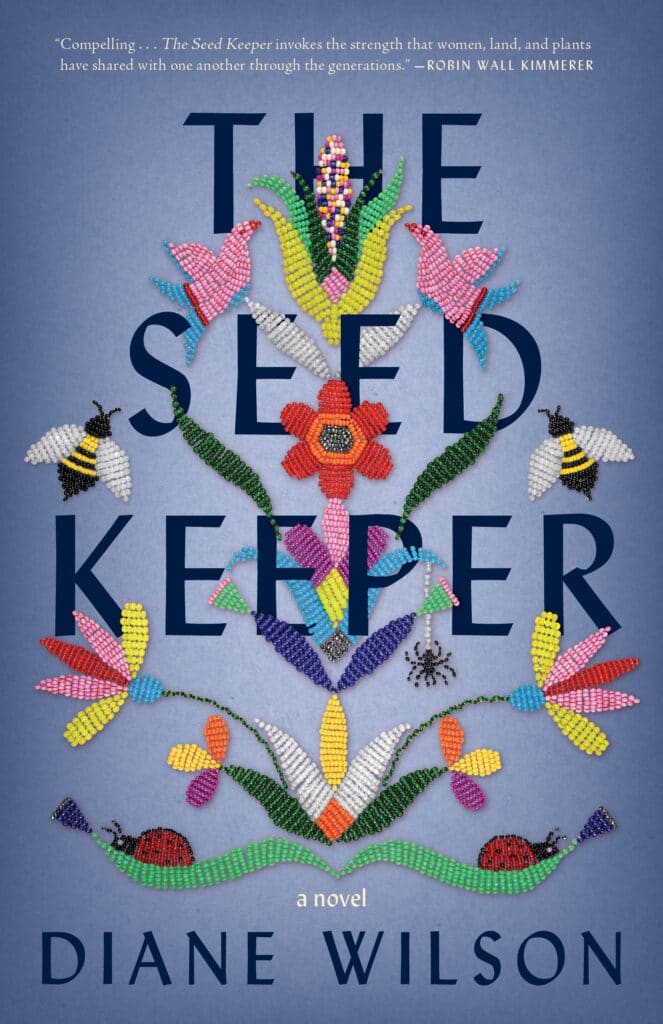Diane Wilson, author of The Seed Keeper
Novel & Short Story Category
Each week leading up to the 34th annual Minnesota Book Awards Ceremony, we are featuring exclusive interviews with our 36 finalists. You can also watch the authors in conversation with their fellow category finalists here.

Would you tell us one or two things about your finalist book that you are particularly proud of, and why?
I’m proud of moving from creative nonfiction to writing a novel – it’s a challenging leap of craft. Based on feedback, I’m especially proud of transforming a piece of little-known history into a story that resonates with a diverse audience.
What do you hope that your audience learns or takes away from your book?
I hope the story moves readers to reflect on their own relationship to seeds, plants and nature in general, as well as gain a deeper understanding of how that relationship has been impacted by industrial agriculture. Most of all, I hope readers understand and connect to an indigenous world view that regards all beings as relatives, rather than as commodities to be exploited.

What advice would you give to an aspiring writer with an interest in your category?
Aspiring writers can learn a great deal by studying the work of writers they admire, learning craft from their books. Choose a writer and a favorite book as a “mentor,” and explore those same craft techniques in your own writing. Of course, to me writing really means rewriting and rewriting until it resonates as the sound of your own voice.
Tell us something about yourself that is not widely known.
I have a deep fascination and love for tamarack bogs. I live on 10 acres of land that includes a bog that was part of the original landscape before farmers reshaped it through cultivation and grazing animals.
Minnesota enjoys a reputation as a place that values literature and reading. If this sentiment rings true for you, what about our home state makes it such a welcoming and conducive place for writers?
For me it’s the long winter, which is a time for reflection and creative work. If we follow the seasons, we plant in spring, harvest in summer, preserve in fall, and enjoy storytelling through the long, dark nights of winter. We are also blessed with a rich, vibrant community of writers and publishers, as well as artists in all media. It helps that we have the support of generous funders who believe in the importance of the arts.
Since the onset of the pandemic in early 2020, virtually everything about our lives has changed in some way. Has COVID-19 (and its fallout) impacted your writing habits and preferences? Has the unique zeitgeist of the past two years influenced your writing output in any other ways that you can pinpoint?
When the pandemic first imposed severe limitations on our ability to gather in person, I channeled my anxiety into writing, which was fortunate, as I had also overcommitted myself to some big deadlines. The pandemic then became a weird blessing as I had a lot more time for writing and completed a number of projects. I rediscovered my love of being quiet at home.
Diane Wilson (Dakota) is the author of several books, including the Minnesota Book Award-winning Spirit Car: Journey to a Dakota Past. Winner of a 50 Over 50 Award from Pollen/Midwest, Wilson is also the executive director for the Native American Food Sovereignty Alliance.

